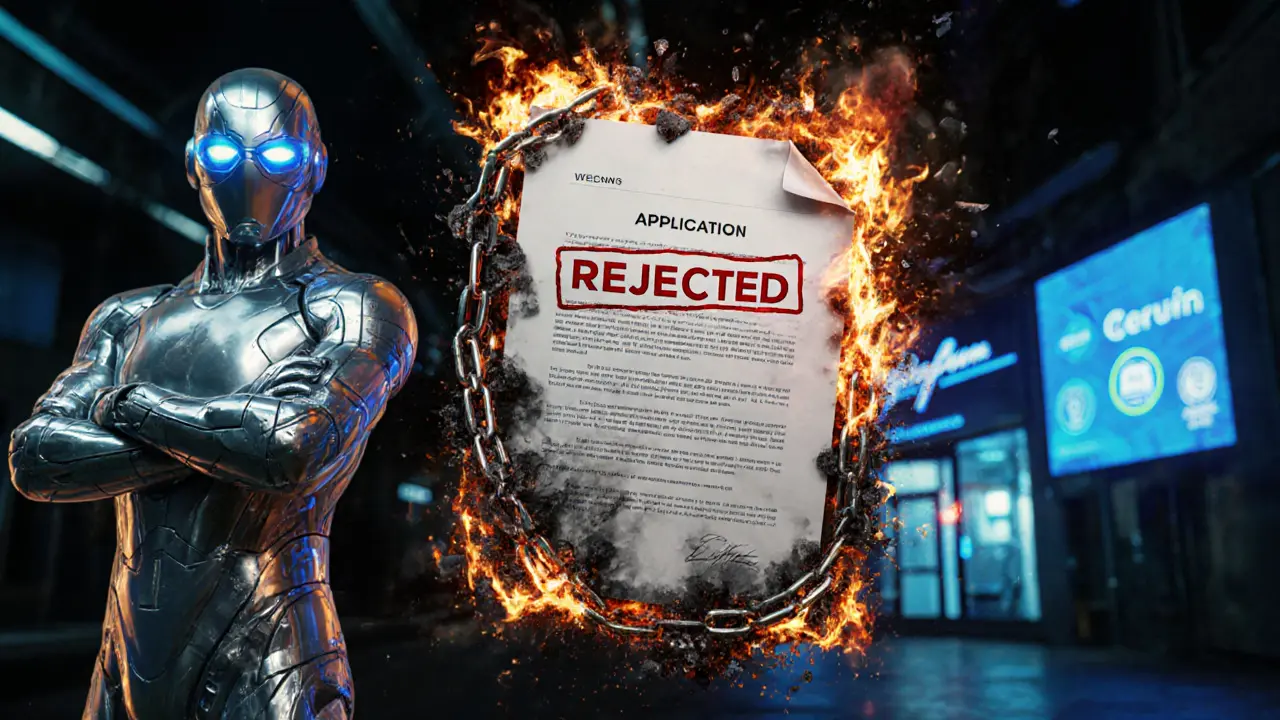UK VASP Registration Eligibility Checker
This tool helps you determine if your crypto business must register with the UK's Financial Conduct Authority (FCA) under the 2023 VASP regulations.
If you're running a crypto business and want to reach customers in the United Kingdom, you can't just launch your website and start marketing. Since September 1, 2023, the Financial Conduct Authority (FCA) has required every virtual asset service provider (VASP) operating in or targeting UK consumers to register. This isn't a suggestion. It's a legal requirement. Skip it, and you're breaking the law - and you could face fines, asset freezes, or even criminal charges.
Who Needs to Register as a VASP in the UK?
You don't need to have an office in London to be affected. The FCA looks at what you're doing, not just where you're based. If your business advertises crypto services to UK customers - even just through social media, a website in English, or accepting GBP payments - you're likely in scope. That includes exchanges, custodial wallets, crypto ATMs, and even peer-to-peer platforms that facilitate trades.
The FCA says registration is mandatory if you:
- Market or promote crypto services to UK residents
- Have a UK-based office or management team handling crypto operations
- Operate crypto ATMs on UK soil
- Receive any benefit - direct or indirect - from UK customer activity
Even if your company is registered in Canada or Singapore, if you're actively trying to get UK customers, you need FCA approval. The only exception? If you're completely passive - no marketing, no UK-facing website, no GBP transactions - and UK users stumble upon you by accident. But that’s rare. Most crypto businesses aren’t that lucky.
What Does the FCA Actually Require?
The FCA doesn’t just want your name and email. They want proof you can run a secure, transparent, and compliant business. Your application must show you’ve built systems to prevent money laundering, fraud, and terrorist financing - just like a bank would.
Here’s what they check:
- Know Your Customer (KYC) and Anti-Money Laundering (AML): You must verify every customer’s identity using reliable documents (passport, utility bill, etc.) and screen them against global sanctions lists. You also need ongoing monitoring of transactions for suspicious patterns - like sudden large transfers or rapid movement between wallets.
- Financial Strength: You need to prove you have enough capital to cover operational costs and potential losses. The FCA looks at your balance sheet, cash flow, and funding sources. If you’re undercapitalized, your application gets rejected.
- Cybersecurity: Your systems must be hardened against hacking, phishing, and data breaches. This includes encryption, multi-factor authentication, regular audits, and incident response plans. The FCA has turned down apps because companies used outdated software or stored private keys on unsecured servers.
- Organizational Structure: Your team needs clear roles. Who’s responsible for compliance? Who handles customer funds? Who’s the AML officer? The FCA requires proof that responsibilities are separated - no one person should control everything.
- Client Asset Protection: Customer crypto must be kept separate from your company’s funds. If you go bankrupt, your clients’ assets shouldn’t vanish with your debts.
The Travel Rule: Non-Negotiable and Hard to Get Right
One of the biggest hurdles for new applicants is the Travel Rule. This rule, based on FATF Recommendation 16, forces VASPs to share identifying details during crypto transfers. If you send or receive over £1,000 worth of crypto to or from another VASP, you must send:
- Name and account number of the sender
- Name and account number of the recipient
- Address or ID number for both parties
It’s not optional. And it’s not just for big transfers - even if the transaction is below £1,000, if you're dealing with an unhosted wallet (like a personal MetaMask), you still need to collect and record the sender’s info.
Many companies fail here because they don’t have the right technology. Spreadsheets won’t cut it. You need integrated software that automatically captures, validates, and transmits this data - and logs it for five years (eight in some cases). If your system can’t do this, your application will be rejected before it’s even reviewed.

The Application Process: What to Expect
The FCA uses an online portal called Connect. You can’t just submit a PDF and wait. You need to upload:
- Company registration documents
- Organizational charts
- AML/CTF policies and procedures
- Technical architecture diagrams
- Financial projections and funding proof
- CVs of key personnel
Every person in a senior role - directors, compliance officers, CTOs - must pass a “Fit and Proper” test. That means the FCA checks their criminal history, past financial misconduct, and professional reputation. Even a minor past violation can delay or kill your application.
Once submitted, your case is assigned to a dedicated FCA officer. There’s no public timeline. Some applications take 3 months. Others take over a year. Why? Because the FCA is overloaded. They’ve received thousands of applications since 2023, and many are incomplete or poorly prepared.
Pro tip: Don’t rush. The FCA will reject applications with missing documents or vague policies. Review every line. Get a compliance expert to audit your submission before you hit send.
Why So Many Applications Get Rejected
Most failures aren’t about being shady. They’re about being unprepared.
Here are the top three reasons applications get turned down:
- Weak AML systems: No real-time transaction monitoring. No risk scoring. No audit trails.
- Banking access issues: Many banks still refuse to work with crypto firms. If you can’t open a business bank account, the FCA assumes you’re not serious or sustainable.
- Unclear organizational structure: One person handling compliance, tech, and customer funds? That’s a red flag.
Even companies with solid tech and clean records get stuck because they didn’t understand the FCA’s expectations. They thought “we have KYC” was enough. It’s not. They need to show how it works, how it’s tested, and how it’s updated.

What Happens After You Register?
Getting approved isn’t the finish line. It’s the starting line.
Once registered, you’re subject to ongoing compliance:
- Annual financial audits
- Quarterly AML reports
- Real-time transaction monitoring
- Immediate reporting of suspicious activity
- Regular staff training on AML/CFT rules
The FCA can visit your office unannounced. They can demand access to your systems. They can suspend your registration if they find gaps.
And if you fail to comply? Your registration can be revoked. You’ll be banned from operating in the UK. Your reputation will be damaged. And you’ll have to restart the entire process if you ever want to try again.
What’s Next for UK Crypto Regulation?
The FCA isn’t slowing down. In autumn 2025, they’re holding more information sessions - this time in Edinburgh - to help businesses understand evolving requirements. They’re also working with international regulators to align standards, especially around the Travel Rule and cross-border reporting.
Expect tighter rules on stablecoins, more scrutiny on DeFi platforms, and possibly new licensing tiers based on business size. The UK is moving toward treating crypto like traditional finance - not as a wild frontier, but as a regulated industry.
Companies that treat compliance as a cost are going to lose. Those that treat it as a competitive advantage - building trust, transparency, and reliability - will survive and grow.
Can You Do This Without Help?
Technically, yes. But realistically? Most businesses fail on their first try.
The FCA’s guidance documents are 200+ pages long. The forms are confusing. The expectations are high. And the stakes are too big to guess.
Many crypto founders hire specialized consultants - firms with experience navigating FCA applications. They help you draft policies, prepare for interviews, fix compliance gaps, and avoid common mistakes. It’s not cheap - but it’s cheaper than getting rejected and losing six months of revenue.
If you’re serious about the UK market, don’t wing it. Get expert help. Build systems that work. And submit a flawless application.
Do I need to register if my crypto business is based outside the UK?
Yes, if you market or promote your services to UK customers - even just through your website, social media, or accepting GBP payments. The FCA focuses on who you’re targeting, not where you’re located. If you’re actively trying to reach UK users, you need FCA registration.
How long does VASP registration take in the UK?
There’s no fixed timeline. Applications can take anywhere from 3 months to over a year. Processing time depends on how complete and accurate your submission is. Incomplete applications or those with weak compliance systems are delayed or rejected. The FCA reviews each case individually.
What happens if I operate without FCA registration?
You’re breaking the law. The FCA can freeze your assets, block your website in the UK, fine you, or refer you to law enforcement. Your business could be shut down permanently. Even if you’re based overseas, the FCA can work with international regulators to enforce penalties.
Can I use a third-party provider for KYC and AML checks?
Yes, but you’re still responsible. You can outsource identity verification or transaction monitoring to a vendor, but the FCA holds your company accountable for any failures. You must ensure the provider meets FCA standards and that you have full access to their logs and reports.
Is the Travel Rule the same in the UK as in the US or EU?
The core requirement is the same - you must share originator and beneficiary details for transfers above £1,000. But thresholds and enforcement vary. The UK follows FATF standards strictly. The US has different thresholds depending on the state. The EU is still rolling out its version. Always comply with the strictest rule if you operate across borders.
Do I need a UK bank account to register?
Not officially, but practically, yes. The FCA will ask for proof of financial stability. Without a UK bank account, it’s extremely hard to show you can manage funds properly. Most banks still avoid crypto firms, so securing one often takes months of negotiation - start early.
What documents do I need to submit for VASP registration?
You’ll need company registration papers, organizational charts, AML/CTF policies, cybersecurity protocols, financial statements, CVs of key personnel, and proof of funding. The FCA provides a detailed checklist on their website, but applications are often rejected for missing even small items like signed declarations or dated policies.





Comments
23 Comments
Henry Lu
Bro this FCA thing is a joke. You think some bureaucrat in London gives a damn about your crypto startup? They’re just trying to kill innovation so their banker buddies can keep siphoning fees. I’ve seen 300+ page compliance docs for a simple exchange - it’s not regulation, it’s extortion. And don’t even get me started on the Travel Rule. You want me to send my users’ private info to some government database? LOL. Good luck with that.
nikhil .m445
Dear Sir, I am writing to inform you that this article is very informative. However, I must point out that the FCA requirements are not optional. It is mandatory for all VASPs targeting UK customers. I have personally seen companies fail because they ignored this. Please do not underestimate the seriousness of compliance. Thank you.
Rick Mendoza
Travel Rule is the real killer. No one has the tech to handle it right. Spreadsheets? Nope. Half the startups out there are just winging it with Python scripts and hope. The FCA knows this. They’re waiting for you to slip up. Then they come in with the hammer. And you’re done. No second chances. Just ask the ones who got frozen.
Lori Holton
So let me get this straight - the same government that bailed out banks with trillions now wants crypto startups to prove they’re ‘financially stable’? And you call this fair? The FCA is a puppet of the old financial elite. They don’t want innovation. They want control. And if you’re not paying off the right people? You’re not getting registered. This isn’t compliance - it’s a pay-to-play system disguised as law.
Bruce Murray
Just wanted to say - if you’re reading this and thinking about applying, don’t give up. It’s hard. It’s slow. But getting approved changes everything. You get banking access. You get credibility. You get to sleep at night. I know it feels like climbing Everest in flip-flops… but the view from the top? Worth every sleepless night.
Barbara Kiss
Compliance isn’t a cage - it’s a compass. The FCA doesn’t want to smother crypto. They want to give it a spine. Think of it like this: when the wild west had sheriffs, it didn’t die - it matured. The same thing’s happening here. The ones who scream ‘censorship’? They’re the ones who never wanted to build something real. The ones who show up with clean books, solid systems, and real teams? They’re the ones who’ll outlast the hype.
Aryan Juned
OMG this is sooo real 😭 I just got rejected by the FCA last week and I cried for 3 hours straight 😭😭😭 My lawyer said ‘you forgot to notarize page 12 of your AML policy’ and I was like… wait what?!? 😵💫 I thought KYC was just uploading a selfie and a utility bill. NOOOOOOOOOO 😭😭😭 #VASPStruggles #FCAisATerrorist
Nataly Soares da Mota
The Travel Rule isn’t just a technical hurdle - it’s a philosophical rupture. You’re forcing pseudonymous, decentralized protocols to conform to KYC-obsessed, identity-centric legacy systems. That’s not regulation - it’s ontological violence against the ethos of crypto. The FCA isn’t regulating money - they’re trying to re-engineer trust itself. And they’re doing it with Excel sheets and compliance officers who’ve never seen a blockchain.
Teresa Duffy
You got this! I know it feels overwhelming but you’re not alone. I went through this last year. Took me 11 months. Got rejected twice. But I found a mentor. I joined a community. I kept showing up. Now I’m registered and my clients trust me more than ever. You don’t need to be perfect - you just need to be persistent. And hey - if you need help, DM me. I’ve got templates. I’ve got contacts. Let’s do this together 💪
Sean Pollock
Everyone’s acting like this is rocket science. Nah. You just need to pay the right people. I know a guy who got approved in 4 weeks. He didn’t even have a website. He just sent a check to the FCA’s ‘consultant’ and poof - approved. The system’s rigged. If you’re poor and honest? You’ll die trying. If you’re rich and shady? You’ll get a gold star. Wake up. This ain’t about compliance. It’s about who you know.
Carol Wyss
Hey, I know this feels like a mountain, but you’re not failing - you’re learning. Every document you revise, every policy you rewrite, every call with your lawyer? That’s you building something real. The FCA isn’t your enemy. They’re just the gatekeepers of a system that’s still figuring itself out. You’re part of the change. Keep going. You’re doing better than you think 😊
Student Teacher
Wait - so if I’m a small developer and I run a wallet app that accepts GBP but I don’t market to the UK? Do I still need to register? I’ve got 12 users in London who found me on GitHub. Is that ‘targeting’? Because I didn’t even know they were in the UK. This is so ambiguous it’s almost unfair.
Ninad Mulay
Back home in Mumbai, we call this ‘colonial regulation with a British accent.’ The FCA is trying to export its old-world banking rules to a new-world tech. But crypto doesn’t care about borders. It’s funny - the UK wants to be the crypto hub of Europe, but they’re scaring everyone away with paperwork that would make a medieval monk faint. Maybe they need to chill. Or hire someone who’s actually used a wallet.
Mike Calwell
Why do they make this so hard? Just let us do our thing. I just want to sell crypto. Not write a 300-page novel.
Jay Davies
There’s a common misconception here: that the FCA is hostile to innovation. That’s not accurate. They’re hostile to incompetence. The real issue isn’t regulation - it’s the fact that most applicants don’t understand what ‘robust’ means. A policy that says ‘we do KYC’ isn’t robust. A policy that details data sources, validation thresholds, escalation protocols, and audit trails? That’s robust. The difference between approval and rejection is often one paragraph.
Grace Craig
It is my professional opinion - and I speak as a former compliance officer at a Tier 1 financial institution - that the FCA’s approach is not merely prudent, but profoundly necessary. The absence of standardized, auditable, and immutable record-keeping mechanisms within the crypto ecosystem constitutes a systemic risk to financial integrity. To treat this as a bureaucratic nuisance is not only naive - it is an affront to the principles of economic stewardship.
Ryan Hansen
I’ve been watching this whole VASP registration thing for two years now. I’ve reviewed over 50 applications - not as a regulator, just as a guy who reads too much. What’s fascinating isn’t the failure rate - it’s the patterns. The ones who get rejected? They’re not the ones with bad tech. They’re the ones who think ‘we’re a startup, we’re agile, we’ll fix it later.’ The FCA doesn’t care about your roadmap. They care about your controls right now. And if your ‘later’ is six months away? You’re already late. The real winners? The ones who built their compliance engine before they had their first user. Not after. Before.
Derayne Stegall
YOU GOT THIS 💪🔥 I know it feels impossible but I was in your shoes last year - rejected twice, nearly quit, then found a compliance coach and boom - approved in 4 months. You’re not alone. DM me if you need help with your AML policy template 🚀 #CryptoCompliance #FCAApproved
Astor Digital
My buddy in Berlin got approved last month. He didn’t even have a UK office. Just a virtual address and a lawyer who knew the right forms. The FCA doesn’t care where you’re from - they care if you’re serious. If you’re treating this like a tax form? You’re gonna fail. If you’re treating it like building a fortress? You’re gonna win. Simple as that.
Shanell Nelly
Hi! I help startups with FCA applications - happy to answer any questions! I’ve helped 17 companies get approved since last year. Most just need someone to walk them through the checklist. No need to panic. You’ve got this. And if you’re stuck on the Travel Rule tech? I’ve got a vendor list that actually works. Just ask 😊
Aayansh Singh
Pathetic. You think this is about compliance? It’s about control. The FCA doesn’t want crypto to thrive - they want it to be a subservient appendage to the Bank of England. Every requirement is designed to kill small players. The big firms? They’ve got legal teams that eat this stuff for breakfast. This isn’t regulation. It’s economic apartheid. And you’re all just sheep signing the papers.
Rebecca Amy
Why is everyone acting like this is new? The FCA has been doing this since 2018. They’ve rejected over 90% of applicants. The real question isn’t ‘how do I get approved?’ - it’s ‘why are you still trying?’
Darren Jones
Just a quick note - if you’re reading this and feeling overwhelmed, please remember: you’re not alone. Many of us have been there. The documents, the deadlines, the fear of rejection - it’s real. But every single requirement here exists to protect you, your users, and the future of crypto. Take a breath. Break it into pieces. One policy at a time. One form at a time. You’ve already done the hardest part - you’re trying. And that matters more than you know. 💙
Write a comment